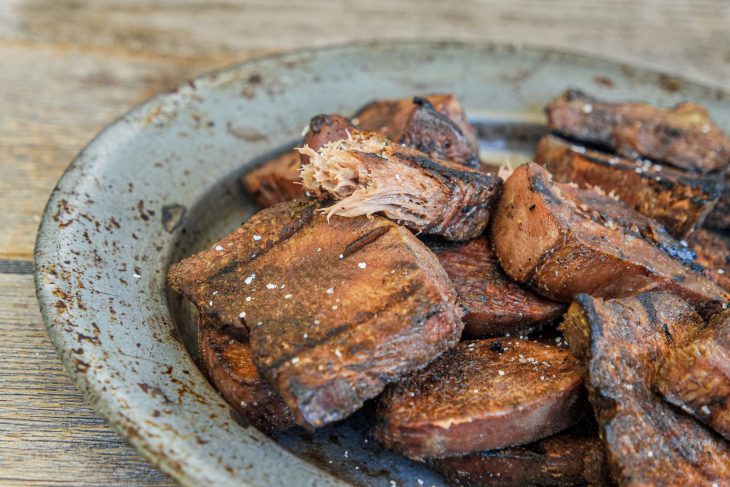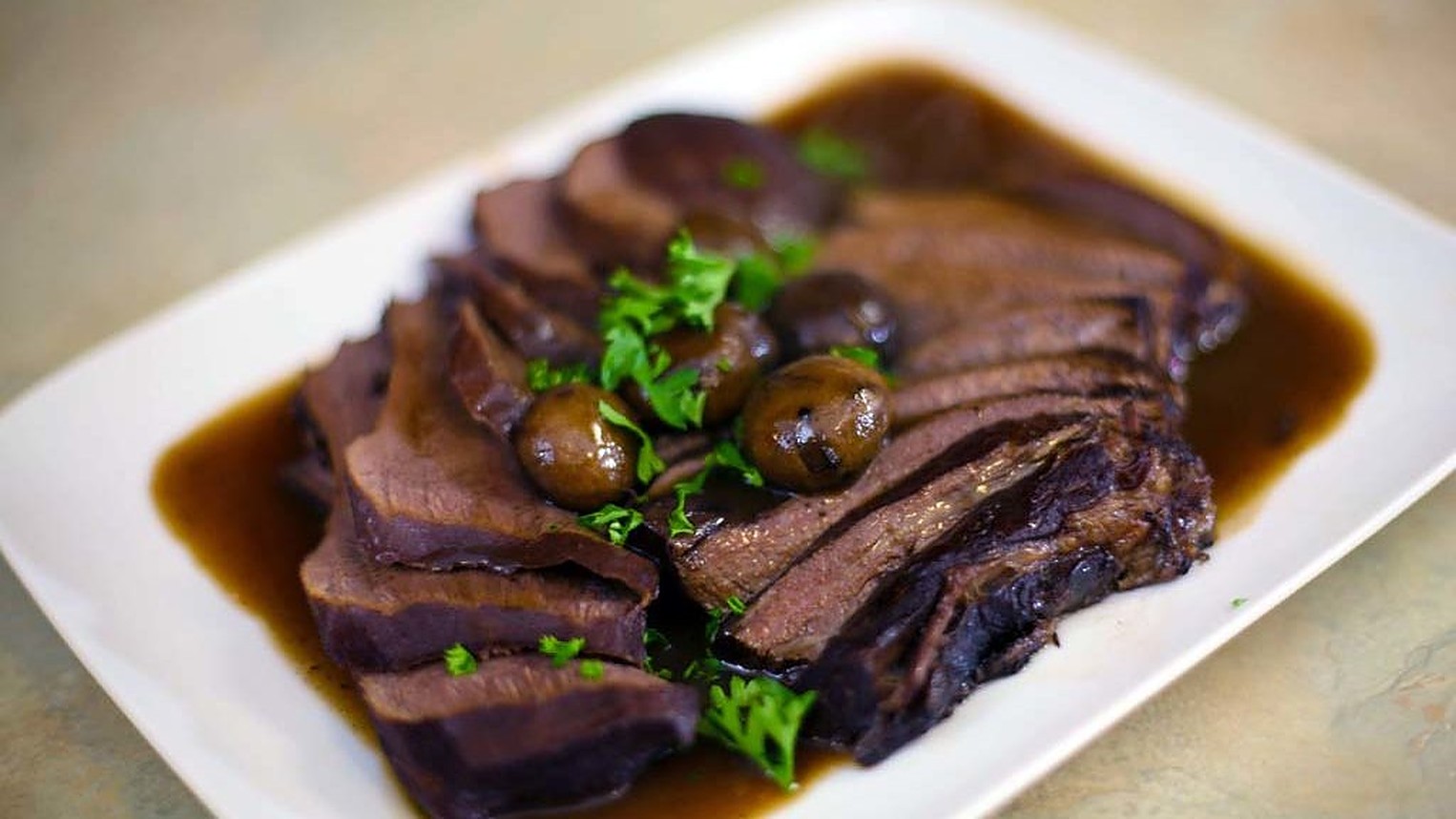
When it comes to culinary delights, beef tongue may not be the first thing that comes to mind. However, this unique delicacy offers a surprising array of health benefits and nutritional value. Whether you’re an adventurous foodie or simply curious about exploring new flavors, understanding the nutrition facts of the beef tongue can help you make informed decisions about incorporating it into your diet. In this article, we delve into the fascinating world of beef tongue and uncover 19 nutrition facts that make it a noteworthy addition to your plate.
Protein Powerhouse
Protein is an essential macronutrient that plays a crucial role in building and repairing tissues, supporting the immune system, and providing energy. Beef tongue is a great source of high-quality protein, with approximately 26 grams of protein per 100 grams. Including this flavorful meat in your meals can help meet your protein needs.
Abundant Vitamins and Minerals
Beef tongue is not only rich in protein but also packed with various vitamins and minerals. It is particularly high in vitamin B12, zinc, iron, and selenium. These nutrients contribute to maintaining a healthy nervous system, supporting immune function, aiding in red blood cell production, and promoting overall well-being.
Vitamin B12 Boost
Vitamin B12 is essential for numerous bodily functions, including the production of red blood cells and DNA, as well as the proper functioning of the nervous system. Beef tongue is an excellent source of vitamin B12, providing more than 200% of the recommended daily intake per 100 grams. Incorporating this meat into your diet can help prevent deficiencies and support optimal health.
Iron-Rich Delight
Iron is a vital mineral that plays a crucial role in transporting oxygen throughout the body and supporting energy production. Beef tongue contains a significant amount of iron, making it an excellent food choice, especially for individuals at risk of iron deficiency or anemia.

Zinc for Immune Health
Zinc is known for its immune-boosting properties. It aids in wound healing, supports the immune system, and contributes to normal growth and development. Beef tongue is a rich source of zinc, making it a valuable addition to your diet to help maintain a healthy immune system.
Selenium’s Antioxidant Power
Selenium is an essential mineral that acts as a powerful antioxidant, protecting cells from damage caused by free radicals. Beef tongue contains selenium, which contributes to overall antioxidant defense and supports various bodily functions, including thyroid health.
Rich in Essential Fatty Acids
Beef tongue contains small amounts of healthy fats, including omega-3 and omega-6 fatty acids. These essential fatty acids play a vital role in brain health, reducing inflammation, and supporting heart health.
Low in Calories
Despite being a nutrient-dense food, beef tongue is relatively low in calories compared to other cuts of meat. This makes it an excellent choice for those watching their calorie intake while still enjoying a flavorful and satisfying meal.

Low in Carbohydrates
If you’re following a low-carb or ketogenic diet, beef tongue can be a suitable option. It contains negligible amounts of carbohydrates, making it a great choice for individuals looking to minimize their carb intake while maintaining a balanced diet.
Collagen-Rich Delicacy
Collagen is the most abundant protein in the human body and plays a crucial role in maintaining healthy skin, joints, and connective tissues. Beef tongue is an excellent source of collagen, providing the body with the necessary building blocks for optimal skin health and joint function.
Essential Amino Acids
Amino acids are the building blocks of protein and are essential for various bodily functions. The beef tongue contains all essential amino acids, making it a complete protein source that supports muscle growth, repair, and overall health.
Vitamin C Content
While the beef tongue is not a significant source of vitamin C, it still contributes a small amount to your overall intake. Vitamin C is a powerful antioxidant that supports immune function and aids in collagen synthesis.
Hydration Benefits
The beef tongue contains a considerable amount of water, which contributes to its overall moisture content. Including this meat in your diet can help increase hydration levels and support optimal bodily functions.
Source of Choline
Choline is an essential nutrient that plays a vital role in brain health, liver function, and cell structure. The beef tongue contains choline, which contributes to these functions and supports overall well-being.

High-Quality Animal Protein
Protein quality is determined by the presence of essential amino acids and their digestibility. The beef tongue provides high-quality animal protein that is easily absorbed and utilized by the body.
Flavorful Culinary Ingredient
Beyond its nutritional value, beef tongue is prized for its unique flavor and tender texture. It can be prepared in various ways, such as braising, boiling, or grilling, allowing you to explore different culinary possibilities and create memorable dining experiences.
Versatile in Cooking
Beef tongue’s versatility in cooking is another reason to include it in your culinary repertoire. From traditional dishes like tacos de lengua to modern interpretations in gourmet restaurants, this delicacy can be used in a wide range of recipes, adding depth and complexity to your meals.
Cultural Significance
The beef tongue holds cultural significance in many cuisines worldwide. It is celebrated as a delicacy in various countries and is often featured in traditional dishes that are cherished for their historical and cultural roots.
Sustainable Food Choice
Sustainability is a growing concern in the food industry, and choosing sustainable options can have a positive impact on the environment. Beef tongue is considered a sustainable choice since it utilizes parts of the animal that might otherwise go to waste. By incorporating beef tongue into your diet, you contribute to reducing food waste and promoting a more sustainable food system.
Conclusion
The beef tongue may not be a mainstream culinary choice, but it certainly deserves recognition for its exceptional nutritional profile and health benefits. From its protein content to its abundance of vitamins and minerals, this unique delicacy offers a range of reasons to include it in your diet. Whether you’re a food enthusiast seeking new flavors or someone looking to optimize their nutrition, the beef tongue can be a delightful addition to your table.
Frequently Asked Questions (FAQs)
Is beef tongue safe to eat?
Absolutely! Beef tongue is safe to eat as long as it is properly cooked and prepared. It is essential to ensure that the meat reaches a safe internal temperature to eliminate any potential bacteria or parasites.
How can I incorporate beef tongue into my diet?
There are numerous ways to enjoy beef tongue. It can be braised, boiled, grilled, or even used as an ingredient in stews or sandwiches. Experiment with different recipes and cooking methods to find your preferred way of savoring this unique delicacy.
Where can I buy beef tongue?
Beef tongue is available at many butcher shops, specialty meat markets, and grocery stores. You can also inquire at your local farmers’ market or order it online for added convenience.
Are there any alternative names for beef tongue?
Yes, beef tongue is known by different names in various cuisines. In Spanish, it is called “lengua,” while in French, it is referred to as “langue de boeuf.” Exploring different cultural cuisines can provide you with additional names for this delectable cut of meat.
Can beef tongue be frozen for later use?
Yes, the beef tongue can be frozen for future use. It is recommended to wrap it tightly in freezer-safe packaging to maintain its quality. When you’re ready to use it, simply thaw it in the refrigerator before cooking.
Was this page helpful?
Our commitment to delivering trustworthy and engaging content is at the heart of what we do. Each fact on our site is contributed by real users like you, bringing a wealth of diverse insights and information. To ensure the highest standards of accuracy and reliability, our dedicated editors meticulously review each submission. This process guarantees that the facts we share are not only fascinating but also credible. Trust in our commitment to quality and authenticity as you explore and learn with us.
